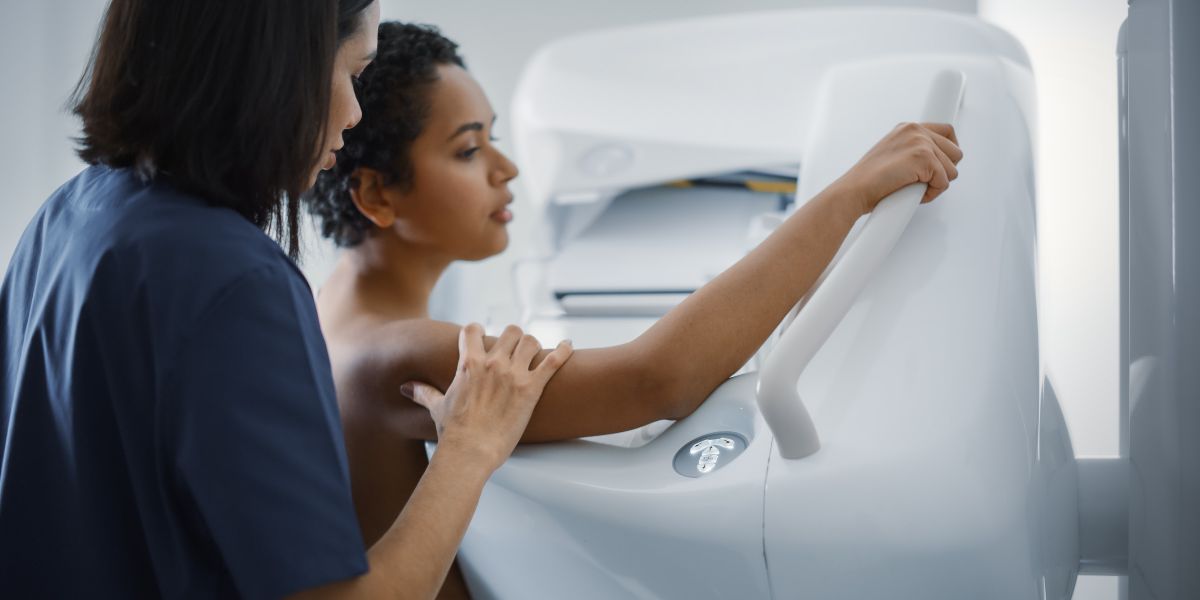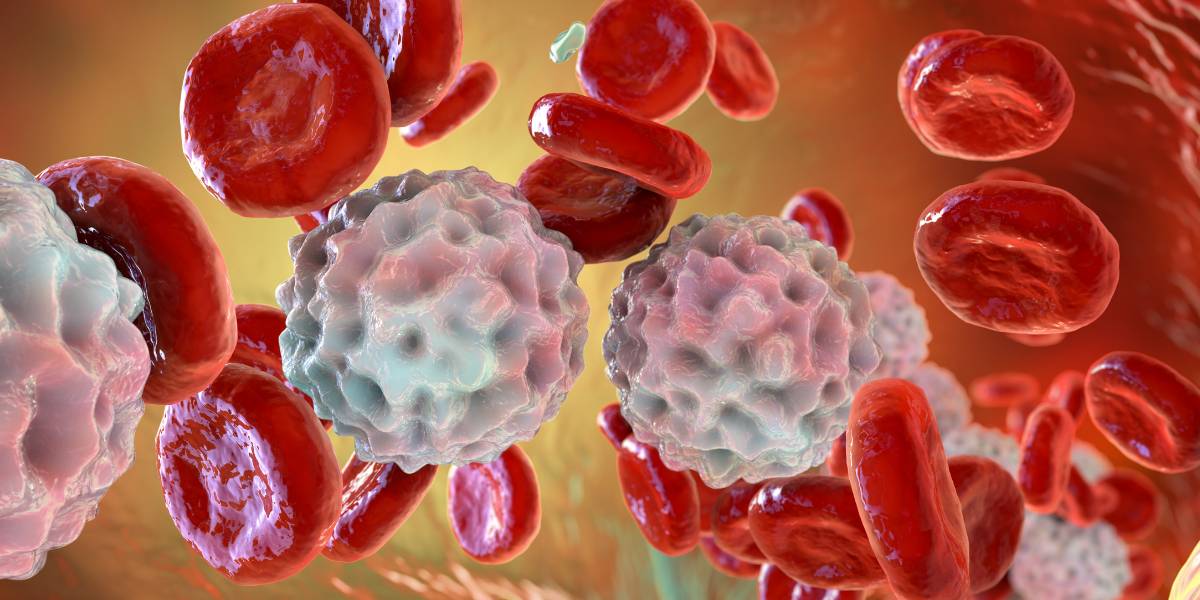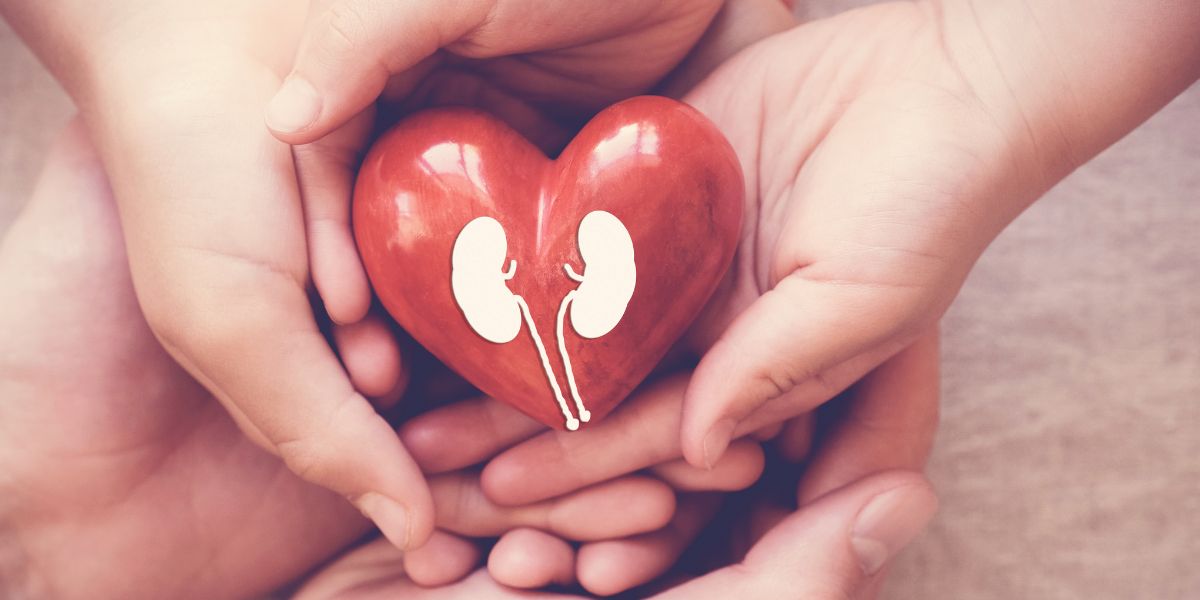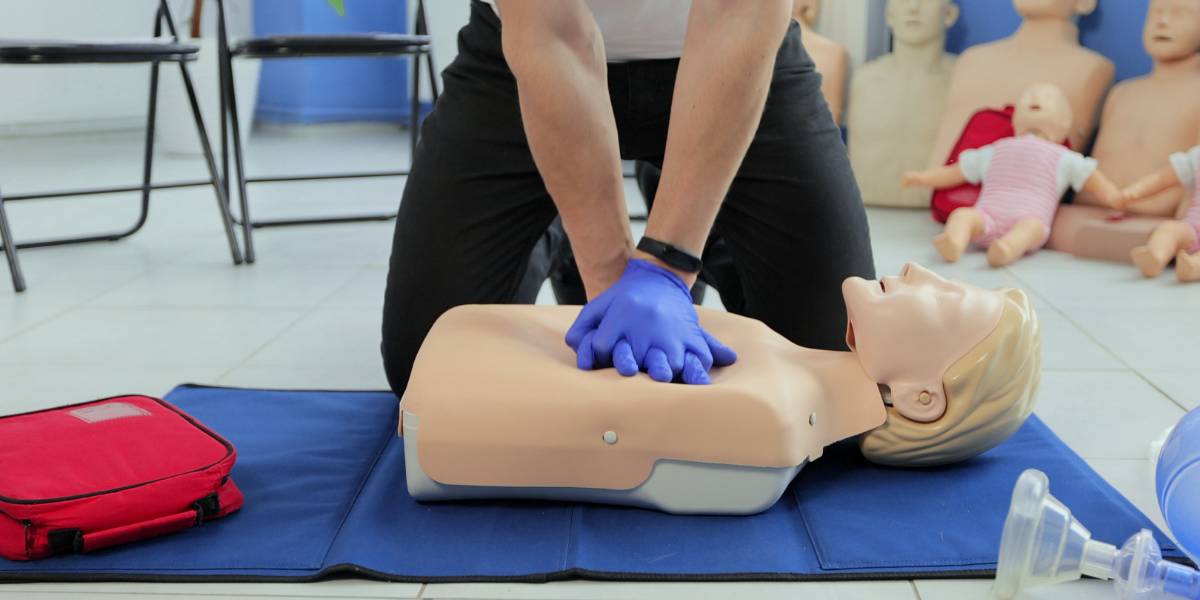Breast cancer is a common form of cancer – the most common cancer in women – that develops inside the tissue of the breast.
This section explains how breast cancer, which can also occur in men, is linked to diabetes in addition to what the common risk factors and symptoms of breast cancer are and how the disease is treated.
What is breast cancer?
Breast cancer refers to cancer – the uncontrollable growth and spread of new cells – that originates from breast tissue.
As cancer can develop in different parts of the breast, there are various different types of breast cancer. Some remain inside the breast and are known as non-invasive breast cancers (or carcinoma in situ), while most have the ability to spread outside the breast and are commonly referred to as invasive breast cancer.
The most common type of non-invasive cancer is ductal carcinoma in situ (DCIS), or cancer found in the milk ducts of the breast.
The most common form of breast cancer is invasive ductal breast cancer , which develops in the cells that line the breast ducts.
It accounts for around 80% of all cases of breast cancer.
Other less common types of breast cancer include:
- Invasive lobular breast cancer – develops in the inner lining of the milk-producing glands of the breast (lobules)
- Inflammatory breast cancer – a rare and very aggressive cancer in which affected cells block lymph vessels in the skin of the breast, causing it to swell
- Paget’s disease of the breast – an infiltrating cancer of the cells that line that nipple
- Secondary or metastatic breast cancer – cancer that spreads from the breast to other parts of the body, usually through the bloodstream or the lymph nodes (small glands that filter bacteria)
How common is it?
In the UK, breast cancer is the most common cancer in women and the second most common cause of death from cancer.
Around 48,000 women are diagnosed with the disease every year, most of whom (80%) are over the age of 50 and have been through the menopause.
In some rare cases, men are also affected by types of breast cancer.
What causes breast cancer?
A woman’s breasts consist of fat, connective tissue, thousands of mini glands (lobules), which produce milk, and tiny tubes (ducts) that deliver the milk to the nipple to allow women to breastfeed.
As with most types of cancer, doctors do not the exact causes of breast cancer but what they do know is that certain factors can increase the chances of breast cancer developing.
These include:
- Age – Breast cancer risk increases as you get older
- Hormone activity – The female hormone oestrogen can, in some cases, stimulate the growth of cancerous cells. The longer or the more oesterogen your body is exposed to, the slightly higher your risk of breast cancer may be.
- Early menarche and late menopause – This increases the amount of time your body is exposed to oestrogen
- Not having children – Pregnancy helps disrupt oestrogen exposure between puberty and menopause
- Hormone Replacement Therapy (HRT)
- Family history of breast or ovarian cancer
- Radiation to the chest – e.g. X-rays and CT scans that use radiation
- Previous history of breast cancer
- Previous benign breast lump – Certain benign changes in your breast tissue can raise your risk of breast cancer
- Dense breast tissue – Denser glandular tissue in the breasts contains more cells that can become cancerous
- Postmenopausal obesity – Having a high BMI after menopause causes more oestrogen to be produced, with figures from Cancer Research UK suggesting it raises the risk of postmenopausal breast cancer by up to 30%
- High alcohol consumption
- Type 2 diabetes
How is diabetes linked to breast cancer?
Breast cancer has been shown to be more common in women with type 2 diabetes , particularly among older patients who have gone through menopause, with research showing that diabetic women are up to 20% more likely to develop postmenopausal breast cancer than older, non-diabetic women.
The general school of thought amongst researchers is that this link may be indirectly associated with being overweight/obese, a known risk factor for both diseases. But they don’t rule out the possibility that type 2 diabetes may directly affect breast cancer risk , as highlighted in this study.
A more recent medical study conducted by scientists in California gave more insight as to why breast cancer is more common in people with type 2 diabetes
Metformin and breast cancer risk
Metformin, the most commonly used type 2 diabetes drug , has been linked with reduced incidence of various cancers, and this includes breast cancer.
In November 2012, researchers in Italy reported that metformin could be used to help treat or even prevent the development of breast cancer in postmenopausal women who do not have diabetes.
What are the symptoms?
The most obvious sign of breast cancer is a lump or area of thickened tissue in either breast.
9 in 10 breast lumps are not cancerous, but to be on the safe side you should still have them checked by your doctor.
Other common symptoms of breast cancer can include:
- A change in the size or shape (appearance) of one or both breasts
- Dimpling on the skin of your breasts
- Breast or armpit pain unrelated to your period
- Nipple rash
- Discharge from one or both of the nipples – this may include blood
- Sunken nipples or any other change in their appearance
- Swollen armpits
If you notice any of these symptoms of breast cancer, contact your GP as soon as possible for a check-up. If after examining your breasts they feel your symptoms need further assessment, you will be referred to a specialist breast cancer clinic for screening.
Breast cancer screening and diagnosis
Around a third of breast cancer cases are diagnosed following routine breast cancer screening, which involves having a mammogram to produce an X-ray of the breast(s). The X-ray is examined for any abnormalities and the results are then sent to you and your GP.
In some cases, an ultrasound scan may also be required or recommended instead of a mammogram (for example, in younger women under the age of 35).
Regular screening, which in the UK is provided every 3 years to women aged 50-70 under the NHS , is vital for identifying breast cancers at an early stage – where there is a good chance of successful treatment and no need for a mastectomy (breast removal) or chemotherapy.
In addition to screening, breast cancer may also be diagnosed using a biopsy, which involves taking a sample of tissue cells from the breast and testing them to see if they are cancerous.
Treatment for breast cancer
There are various forms of treatment for breast cancer. The most suitable one for you will depend on:
- The size of the tumour and how far it has spread (cancer stage and grade)
- Any other medical condition you have – for example if you have diabetes
- Whether you have been through menopause or not
After taking into account these factors, your healthcare team will discuss with you which treatments are most suitable and recommend one or a combination of the following:
Surgery
Breast cancer surgery involves either surgery to remove the tumour, known as breast- conserving surgery, or surgery to remove the whole breast, known as a mastectomy.
Chemotherapy
Chemotherapy involves using anti-cancer drugs to kill the cancer cells. It is usually used after surgery to kill off any cancer cells that are still present.
Radiotherapy
This involves controlled doses of radiation administered after surgery and chemotherapy to destroy any remaining cancerous cells.
Hormone therapy
Treatment that reduces levels of the natural-occurring hormones oestrogen or progesterone in your body or stops their effects.
Long-term exposure to these hormones can trigger the growth of some breast cancers.
Biological therapy (targeted therapy)
Therapy that works by stopping the effects of a the HER2 protein, which in some cases, can stimulate the growth of cancerous cells in the breast(s). This type of treatment also assists your immune system in staving off cancer cells.
As with all types of cancer, the earlier breast cancer is detected and treated, the better your chances of surviving it and making a full recovery will be.
I have diabetes – will it complicate my cancer treatment?
If you are diabetic, your multidisciplinary team of cancer specialists will consult your GP and other members of your diabetes care team to establish the best course of treatment. This will be based on how well controlled your diabetes is and what stage/grade your breast cancer is at.
Active cancer, cancer therapies such as chemotherapy, and the side effects of these treatments can all affect diabetes management, while poorly controlled blood sugar levels can lead to short-term complications which can delay cancer treatment.







